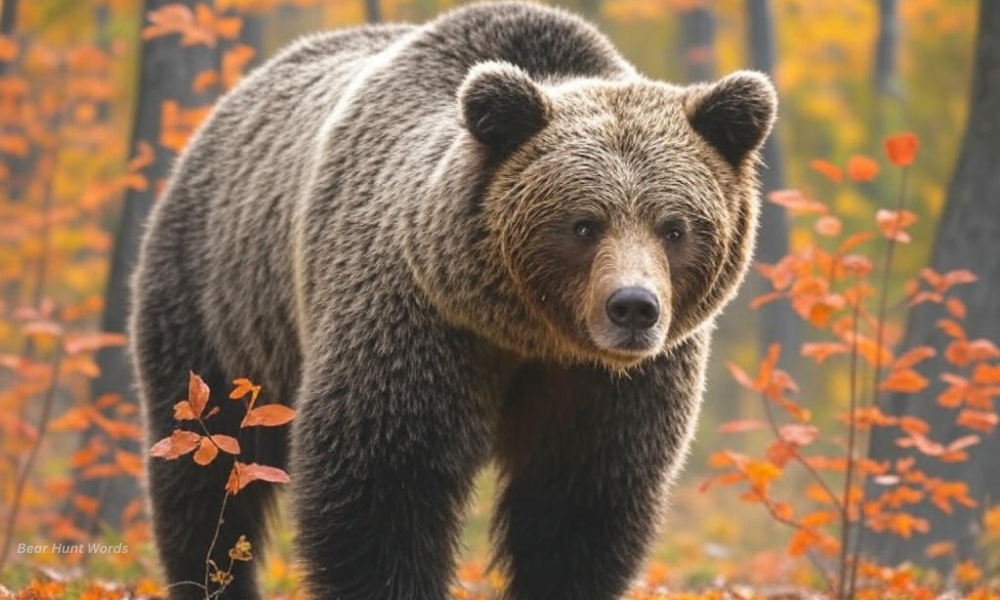We’re Going on a Bear Hunt Words – Complete Guide

We’re Going on a Bear Hunt is a beloved children’s book written by Michael Rosen and illustrated by Helen Oxenbury. It’s a rhythmic, adventurous story that takes readers on a playful expedition through various natural landscapes, all while repeating phrases that stick in the minds of kids everywhere.
Table of Contents
Why This Story Captivates Children
It’s the rhythm. The repetition. The adventure. The catchy phrases. The simple, predictable structure makes it easy for young readers to follow along and even memorize. Plus, the vivid illustrations and dramatic pacing keep them hooked.
User Intent – What Are the “We’re Going on a Bear Hunt” Words?
Let’s get to the point — if you searched “we’re going on a bear hunt words”, you’re likely looking for the exact vocabulary, repeated lines, and phrases used in the book, either for teaching, reciting, or helping a child learn. Below, we’ll break down every important word used and explain their function in the story.
Complete Word List from the Book
This book thrives on repetition, rhythm, and vivid sensory language. Here’s a categorized look at the most used and essential words:
Key Action Words
- Going
- Walk
- Run
- Tiptoe
- Swish
- Splash
- Squelch
- Stumble
- Hurry
- Back
Sound Words (Onomatopoeia)
- Swishy swashy
- Splash splosh
- Squelch squerch
- Stumble trip
- Hoooo woooo
- Tiptoe tiptoe
Repetition and Rhyming Words
- “We can’t go over it.”
- “We can’t go under it.”
- “Oh no! We’ve got to go through it!”
These repetitive structures not only help children anticipate what’s coming but also support language learning and comprehension.
Detailed Breakdown of Vocabulary by Scene
Each scene in the book introduces a new challenge — and with it, new vocabulary.
Grass Scene
- “Long wavy grass”
- “Swishy swashy”
- Verbs: walk, go through
River Scene
- “Deep cold river”
- “Splash splosh”
- Focus words: river, cold, splash
Mud Scene
- “Thick oozy mud”
- “Squelch squerch”
- Descriptive: thick, oozy
Forest Scene
- “Big dark forest”
- “Stumble trip”
- Vivid visuals: big, dark
Snowstorm Scene
- “Swirling whirling snowstorm”
- “Hoooo woooo”
- Imaginative: swirling, whirling
Cave Scene
- “Narrow gloomy cave”
- “Tiptoe tiptoe”
- Dramatic tone: narrow, gloomy, tiptoe
Themes in the Book
- Adventure – The thrill of the journey
- Family Bonding – All characters move together
- Overcoming Obstacles – Every scene has a barrier
- Imagination – It’s a make-believe journey, sparking creativity
Literary Devices Used
Onomatopoeia
The sound words mimic real-life noises, making the book fun and engaging.
Repetition
Repeated phrases like “We can’t go over it…” give rhythm and help with memorization.
Rhythm and Flow
The pacing mimics walking, trudging, or tiptoeing — depending on the scene.
Educational Benefits of the Book
- Vocabulary Building
- Improved Listening Skills
- Pattern Recognition
- Interactive Reading
- Boosting Memory Through Repetition
Teaching Ideas for “We’re Going on a Bear Hunt” Words
- Flashcards: Use cards with words like “swishy,” “splash,” and “mud.”
- Act It Out: Let kids walk through imaginary scenes.
- Story Mapping: Have them draw each setting and label the words.
Printable Vocabulary Activities
You can create worksheets that:
- Match words with images (e.g., “mud” with a picture of mud)
- Fill in the blanks with sound words
- Create your own “hunt” with different words
How to Help Kids Learn New Words from the Story
- Repeat After Reading: Ask questions like “What does ‘squelch’ sound like?”
- Use the Words in Daily Talk: “Let’s tiptoe to the kitchen like in the book.”
- Sing or Chant the Story: It helps embed the language.
Why Repetition is Powerful in Early Literacy
Repetition creates comfort and confidence in young readers. It helps them predict, remember, and even “read” along, even if they can’t yet recognize every letter.
Fun Facts About the Book
- Written in 1989
- Inspired by a traditional folk chant
- Performed live by Michael Rosen (watchable on YouTube!)
- Helen Oxenbury’s watercolor illustrations added emotional depth
- Adapted into a film and stage plays
Conclusion
Bear Hunt Words If you came looking for the “We’re Going on a Bear Hunt words,” now you have not just the words but their meaning, use, and educational value. This timeless book isn’t just fun — it’s a treasure chest of early literacy tools. Whether you’re a parent, teacher, or just someone who loves the rhythm of children’s stories, you now have everything you need to fully enjoy and teach this beloved classic.
FAQs
What are the key repeated phrases in “We’re Going on a Bear Hunt”?
We can’t go over it. We can’t go under it. Oh no! We’ve got to go through it! is the main repeated line.
What age is this book suitable for?
Perfect for ages 2–6, but older kids also enjoy acting it out.
What are some of the onomatopoeia used in the story?
“Swishy swashy,” “Splash splosh,” “Squelch squerch,” “Stumble trip,” “Tiptoe tiptoe.”
Who wrote “We’re Going on a Bear Hunt”?
Michael Rosen wrote it, and Helen Oxenbury illustrated it.
Is there a musical or video version of the story?
Yes! Michael Rosen performs it online, and there are animated versions as well.






